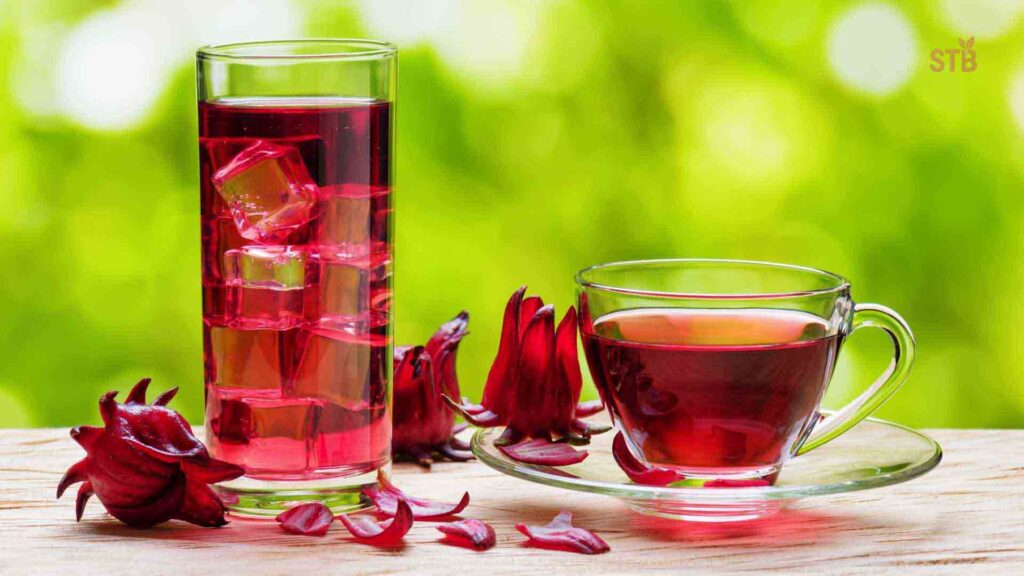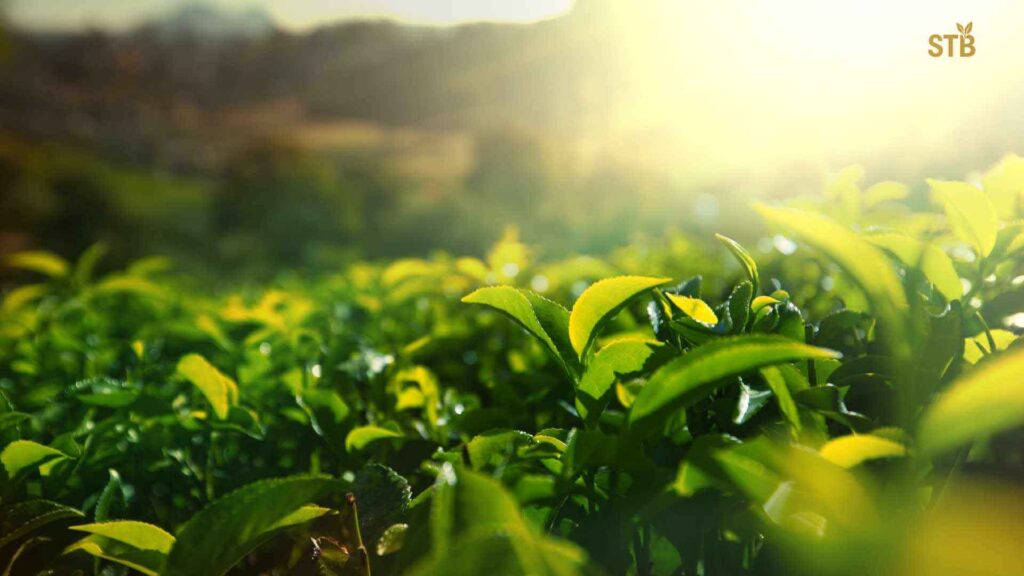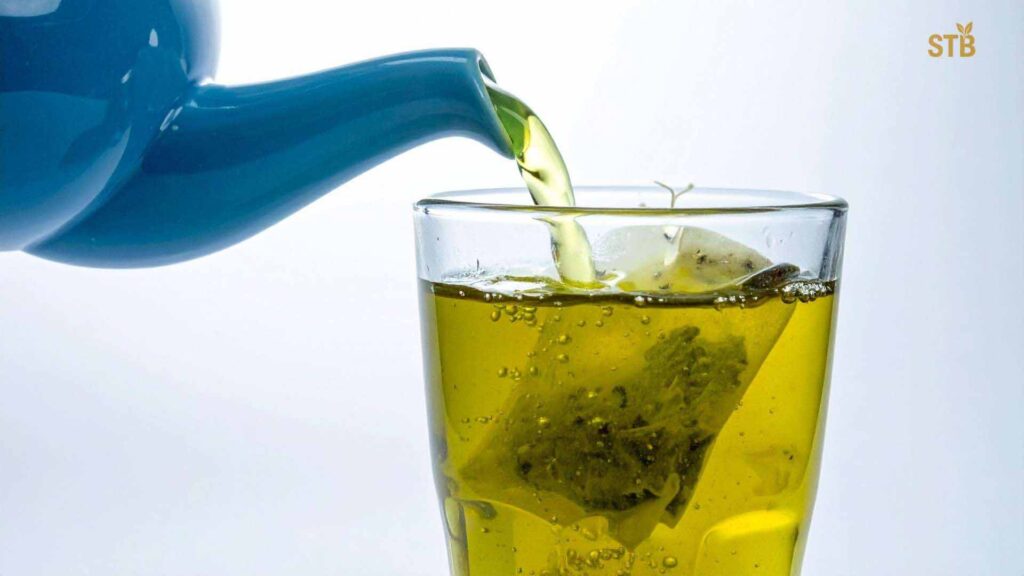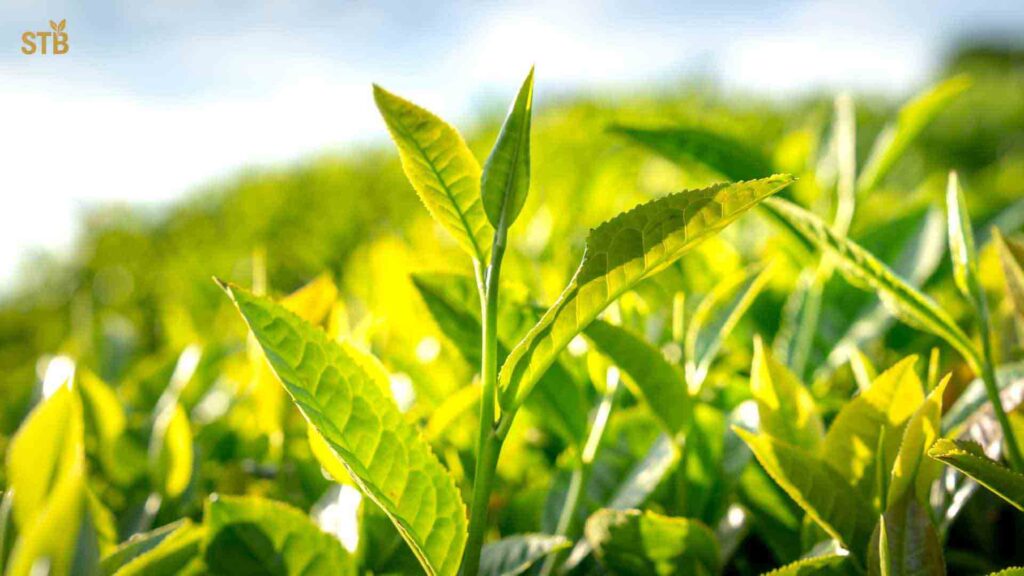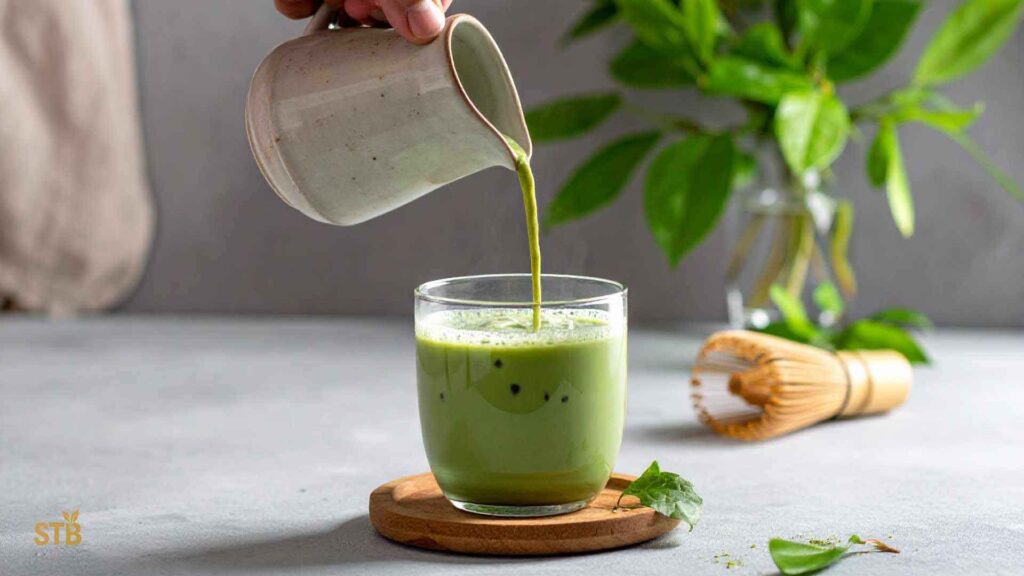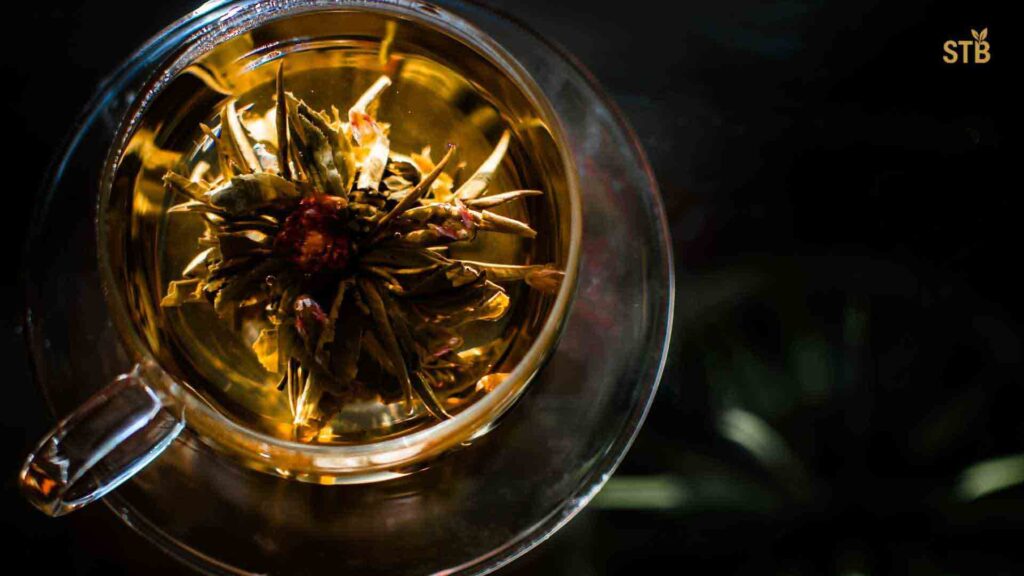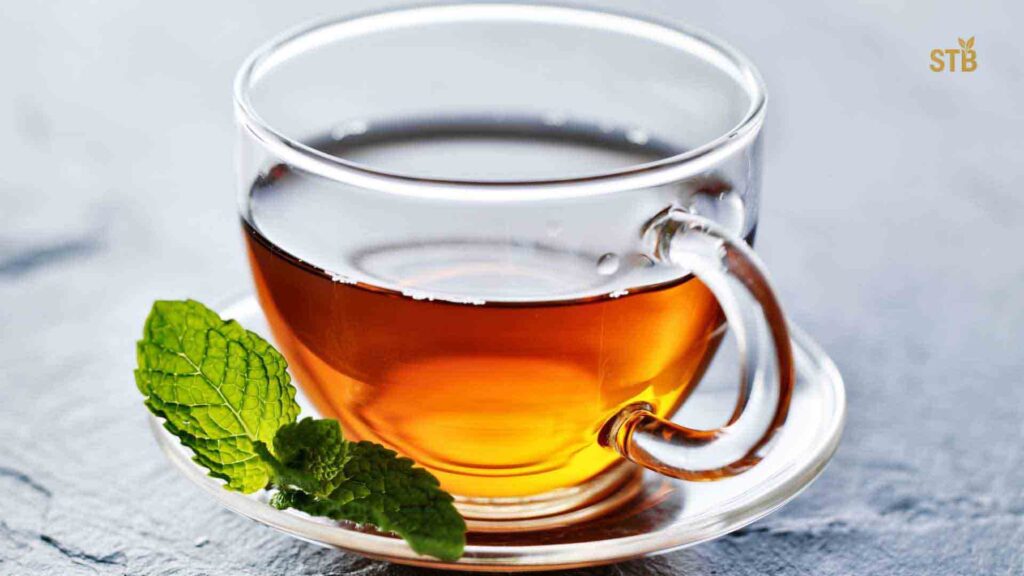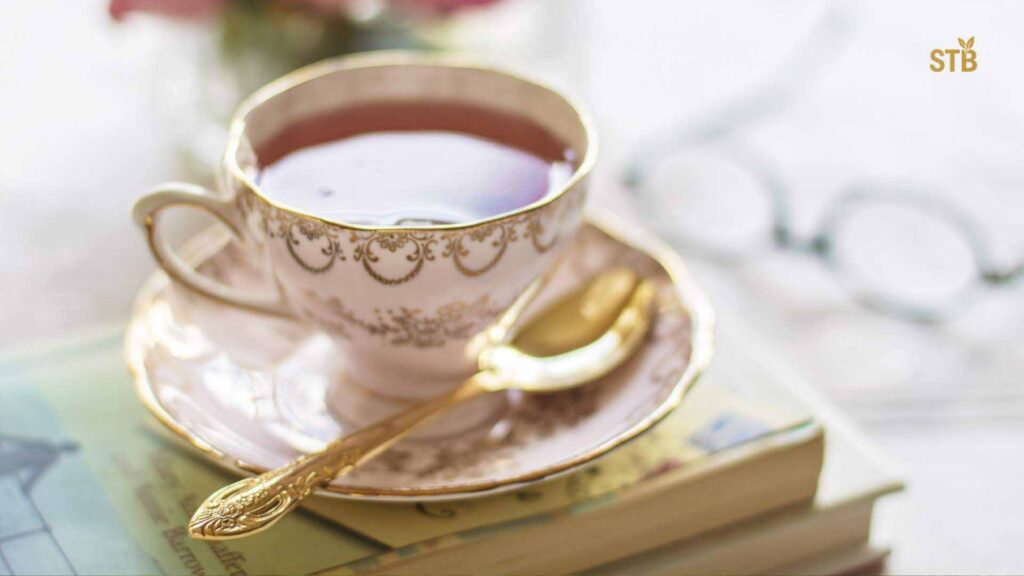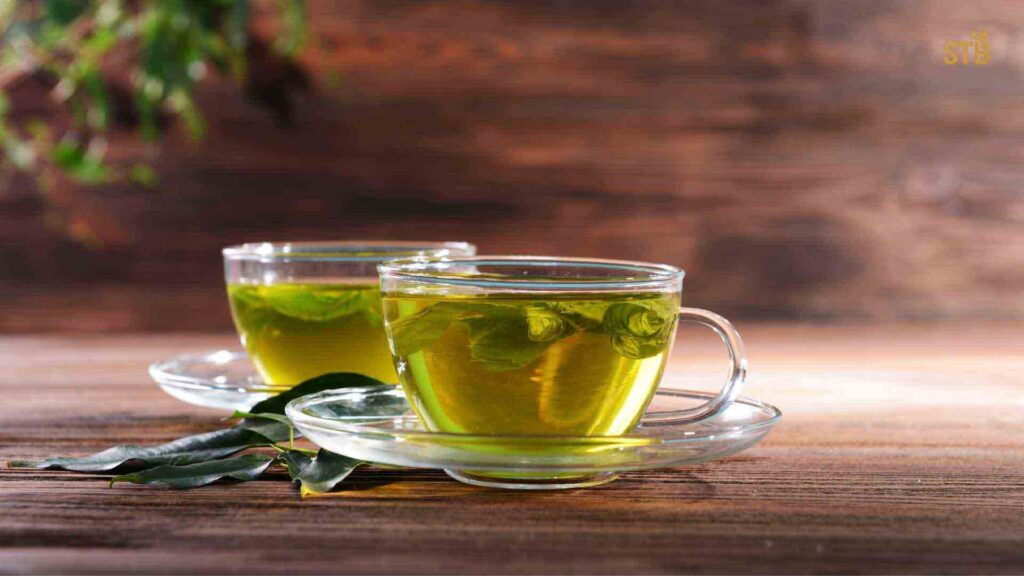Rosella tea – also known as hibiscus tea – is a vibrant red herbal infusion made from the calyces of Hibiscus sabdariffa. In many cultures (including Bangladesh), this tart, ruby-colored tea has been enjoyed for centuries as a natural remedy and refreshing drink.
It is caffeine-free and loaded with antioxidants (especially anthocyanins) and vitamin C. These compounds give rosella tea its bright hue and many healthful properties. (For comparison, our blog’s Different Types of Tea and Their Health Benefits outlines how antioxidant-rich teas support wellness.)
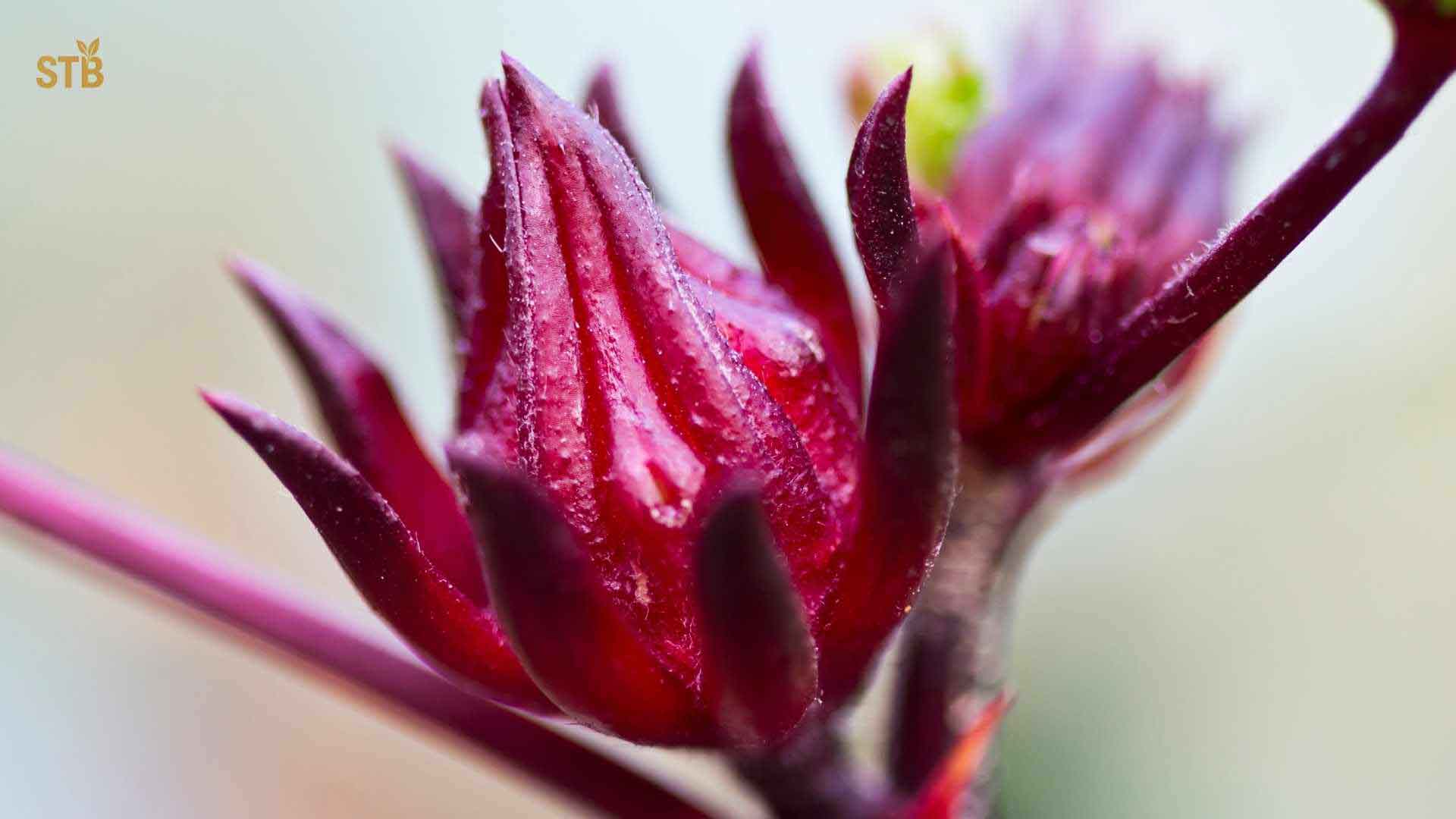
What Is Rosella Tea?
Rosella tea is made by steeping the dried red calyces (sepals) of the Roselle plant (Hibiscus sabdariffa) in hot water. The plant is sometimes simply called roselle, rosella, or sour tea. As a Cochrane review explains, “Roselle contains substances known as anthocyanins” – plant pigments that have been shown in studies to help lower blood pressure and provide antioxidant benefits.
Traditionally, rosella has been used as a thirst-quenching beverage and folk medicine. WisdomLib notes that Roselle is “rich in vitamin C” and has long been used in herbal teas and syrups to relieve colds and flu. In Bangladesh and other warm-climate countries, people often enjoy hibiscus/rosella tea cold or hot for both flavor and wellness.
In fact, even within Bangladesh’s tea culture, herbal infusions (mint, chamomile, lemongrass and similar teas) are “gaining fans for their mild flavor and health image” – a category to which rosella tea clearly belongs.
Rosella tea, a vibrant herbal tea made from the calyces of the Hibiscus sabdariffa L. plant, is a powerhouse of health benefits. Its striking red color is a result of a high concentration of anthocyanins and flavonoids, which are powerful exogenous antioxidants.
These compounds help the body counteract oxidative stress, which is a major contributor to chronic illnesses and aging. Numerous studies have shown that rosella tea can help lower both systolic and diastolic blood pressure, making it a natural option for people with hypertension.
Its natural diuretic properties can also aid in digestion and reduce bloating. Like spearmint tea, rosella tea is naturally caffeine-free, making it a perfect, soothing drink to enjoy at any time of day without disrupting sleep.
Nutritional Profile of Rosella Tea
Rosella tea is prized for its potent phytonutrients. The red color comes from anthocyanins (strong antioxidants) that help neutralize free radicals in the body. These include delphinidin and cyanidin compounds, which research links to protective health effects.
Each cup also delivers a boost of vitamin C, further enhancing immunity and overall health. In addition, rosella contains minerals like calcium, magnesium and potassium, plus polyphenols that contribute to its antioxidant power. (For perspective, Healthline notes that hibiscus tea in general is “high in antioxidants” and may help support heart and liver health)
- Anthocyanins & Polyphenols: These plant antioxidants give rosella tea its ruby color and may help protect cells from damage. Anthocyanins in particular are linked to lower oxidative stress.
- Vitamin C: Rosella is notably “rich in vitamin C”. This nutrient supports the immune system and can help shorten colds.
- Low Calories & Caffeine-Free: Plain rosella tea contains virtually no calories or caffeine. It’s a hydrating, sweet-tart herbal drink (often enjoyed with honey or lemon) without the stimulants of black or green tea.
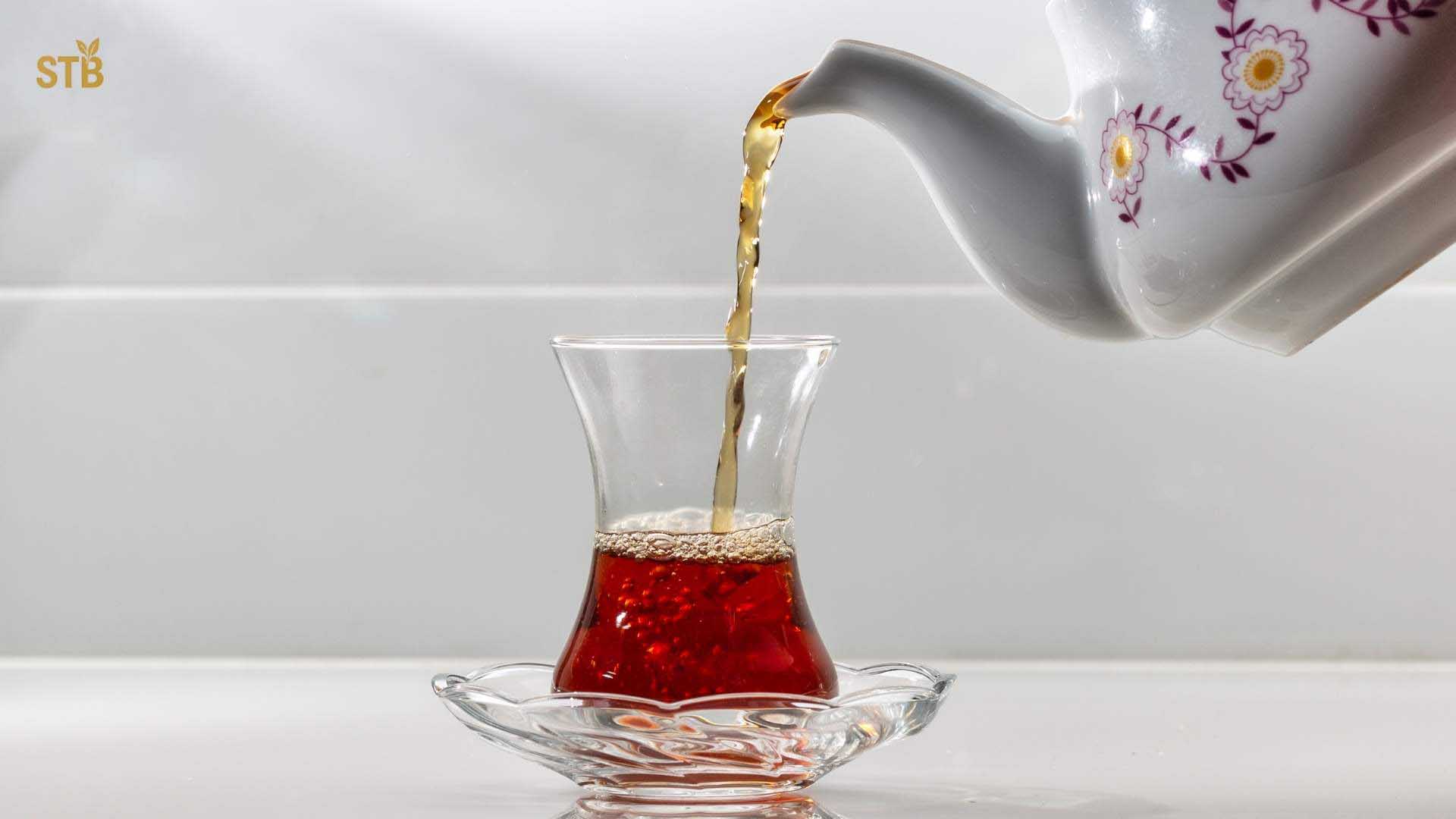
Key Health Benefits of Rosella Tea
Researchers have identified a range of potential health benefits for rosella tea. While more large-scale human trials are needed, current studies and reviews suggest it may:
- Provide a Rich Antioxidant Boost: Rosella tea’s high anthocyanin and polyphenol content means it can neutralize harmful free radicals in the body. As the Cleveland Clinic notes, “The hibiscus plant is rich in antioxidants such as beta-carotene, vitamin C and anthocyanin,” and antioxidant-rich foods “help across the board with quite a few health conditions”. In other words, sipping rosella tea may help protect cells and tissues from oxidative damage.
- May Lower Blood Pressure: Several studies show that daily rosella (hibiscus) tea can modestly reduce blood pressure. For instance, a 2019 review of multiple trials found that Hibiscus sabdariffa tea significantly lowered both systolic and diastolic blood pressure. Likewise, Cleveland Clinic reports that in clinical trials “drinking hibiscus tea has been shown to lower blood pressure in humans.”. This effect is thought to come from the tea’s anthocyanins and other compounds. (However, people on blood-pressure medications should consult a doctor first, as hibiscus can interact with some drugs.)
- Supports Heart Health & Cholesterol: Drinking rosella tea may benefit cholesterol levels. Some research indicates rosella can lower “bad” LDL cholesterol. For example, a 2020 review found that Hibiscus sabdariffa tea “could reduce low-density lipoprotein (LDL), or ‘bad,’ cholesterol”. Cleveland Clinic also notes that hibiscus has shown potential to help maintain healthy cholesterol, although results can vary. Lowering LDL and total cholesterol may help reduce risk of heart disease over time. In short, rosella tea’s antioxidants and polyphenols contribute to cardiovascular wellness by supporting both blood pressure and blood lipids.
- Aids Blood Sugar Control: Rosella tea may help regulate blood sugar. Some studies report that drinking Hibiscus sabdariffa tea significantly lowers fasting blood glucose levels. In people with metabolic syndrome or type 2 diabetes, rosella has shown blood-sugar-lowering effects, possibly due to its bioactive acids. Medical News Today cites a 2020 review finding that H. sabdariffa tea “significantly lowered fasting blood glucose” in trials. While not a substitute for diabetes treatment, rosella tea can be a healthy, low-calorie beverage for people watching their blood sugar.
- Helps with Weight Management: Emerging research suggests rosella tea could support weight goals when combined with a healthy diet. Preliminary studies (often using hibiscus extract) found a positive impact on weight and body fat. For example, Healthline mentions that hibiscus may help promote weight loss by reducing body fat. A 2023 meta-analysis noted that hibiscus tea, especially in combination with other plants, might aid weight loss and improve metabolic markers. In practice, swapping sugary drinks for unsweetened rosella tea is a waistline-friendly choice, and its natural tartness can curb sweet cravings.
- Boosts Immunity and Skin Health: Thanks to its vitamin C and antioxidant content, rosella tea can strengthen the immune system and skin. The high vitamin C helps “boost your immune system,” making rosella tea “excellent for preventing colds and supporting overall health”. Antioxidants also protect skin cells from aging; topical uses of hibiscus exist for skin health. Regular rosella tea drinking may help the body fend off common infections and keep skin glowing.
- Supports Liver Function: Some studies suggest hibiscus tea benefits the liver. Cleveland Clinic notes research showing that hibiscus extract “helps keep the liver healthy” by protecting it from toxins. In lab studies, hibiscus compounds shield liver cells and even exhibit anti-cancer activity in liver cells. These effects are likely due to the tea’s antioxidants reducing liver inflammation and oxidative stress.
- Anti-Inflammatory and Antibacterial Effects: Rosella tea contains anti-inflammatory and antibacterial compounds. Cleveland Clinic reports that animal and small human studies have found hibiscus “ability to fight inflammation”. Hibiscus extract has been shown in lab tests to inhibit certain bacteria and may help gut health. Drinking rosella tea can therefore have a gentle soothing effect on the body’s inflammatory processes.
- Digestive Relief: Anecdotally, hibiscus tea has been used to ease digestion. It is slightly diuretic and may promote regularity. (WebMD notes that the acids in hibiscus “might work like a laxative” for some people.) People often sip rosella iced tea as a refreshing digestive aid.
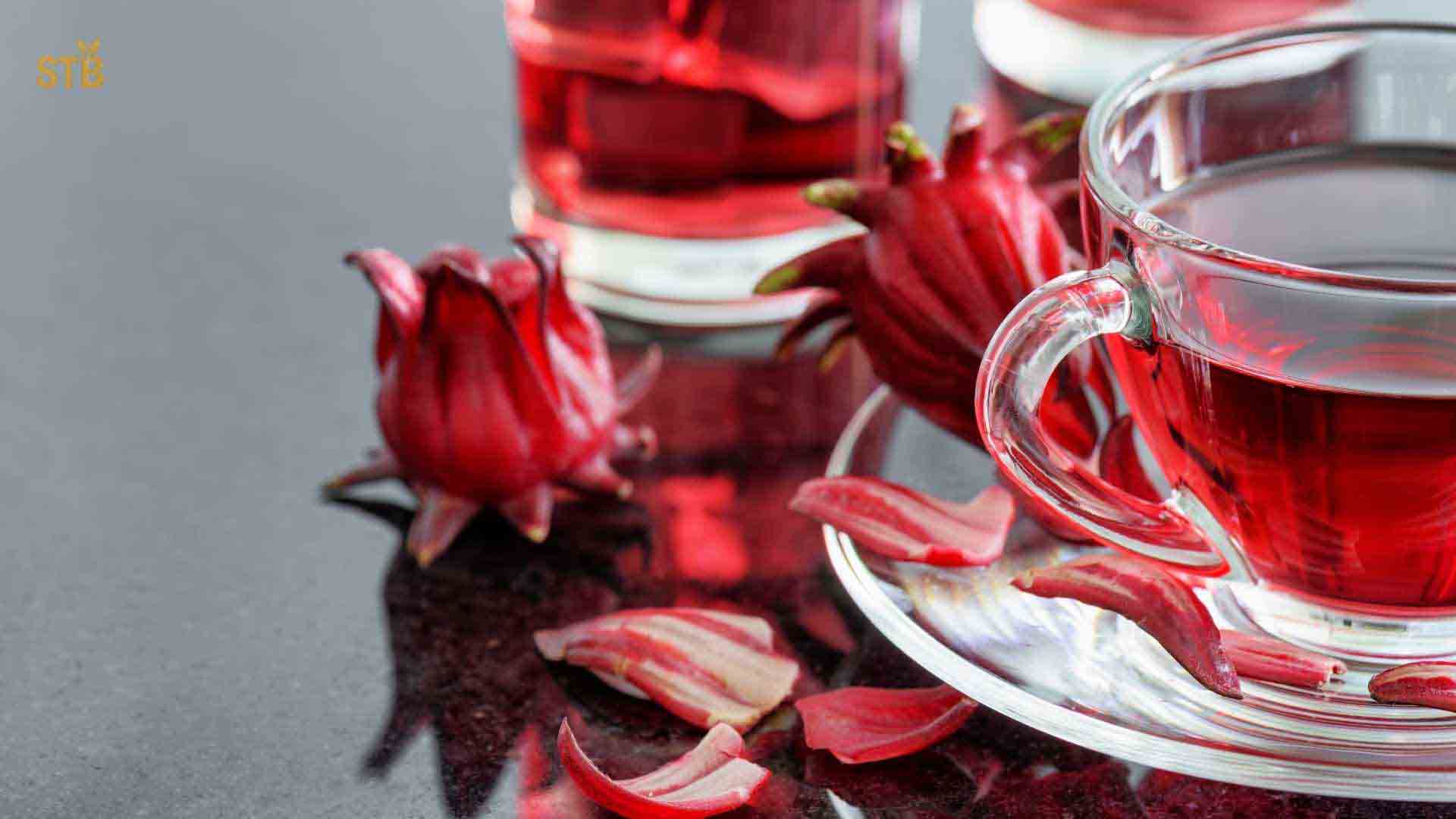
How to Enjoy Rosella Tea
Rosella tea can be brewed hot or cold. To make it, steep 1–2 teaspoons of dried rosella petals (hibiscus calyces) per cup of boiling water for 5–10 minutes, then strain. It has a tangy, cranberry-like flavor. Many enjoy it sweetened with honey or sugar, or combined with mint or ginger.
In Bangladesh, rosella may be served chilled as a cooling summer drink. (STB Leaf’s blog even features creative recipes like rosella lemonade – see our “10 Creative Tea Recipes You Can Try at Home,” which includes a refreshing hibiscus (roselle) lemonade.) Short brewing releases more tartness, while longer steeping yields a richer flavor.
Using Rosella Tea in Bangladesh’s Herbal Traditions
In Bangladesh, tea culture is vibrant: black milk tea (“dudh cha”) reigns, but herbal infusions are growing in popularity. Rosella (hibiscus) joins other herbal teas like spearmint and chamomile as a wellness drink.
For example, STB Leaf notes that herbal infusions (mint, chamomile, lemongrass, etc.) are gaining fans in Bangladesh for their mild flavor and health image. Rosella tea’s bright color and tangy taste make it a natural choice for health-conscious tea lovers. Its ability to be enjoyed hot or chilled fits both winter and summer traditions.
Precautions and Side Effects
Rosella tea is generally safe for most people. The U.S. FDA considers hibiscus safe when consumed as food. However, a few precautions are wise:
- Blood pressure interactions: Because rosella can lower blood pressure, people on BP medication should consult a doctor before adding hibiscus tea to their routine.
- Pregnancy and Hormones: Hibiscus contains phytoestrogens, so its safety in pregnancy isn’t fully established. Some advise caution or limiting intake during pregnancy and nursing.
- Potential Allergy or Stomach Upset: Rarely, sensitive individuals may get stomach upset or allergies from hibiscus.
- Medication Interactions: Hibiscus may interact with certain drugs (e.g. acetaminophen, diuretics). Always check with a healthcare provider if unsure.
As with any herbal tea, moderate consumption (1–3 cups per day) is wise. Most studies use around 2–3 cups daily for benefits.
Conclusion
Rosella tea – the ruby-red brew of Hibiscus sabdariffa – offers a host of health perks: from antioxidant and immune support to heart and metabolic benefits. Its long tradition as a herbal tonic is now backed by modern studies. Whether you sip it hot for comfort or iced for refreshment, you’ll enjoy a naturally caffeine-free, flavorful tea with wellness advantages.
Explore more about tea and wellness on the STB Leaf blog. For authentic Rosella tea, browse STB Leaf’s premium selection of organic teas and infusions – your cup of health is just a click away!
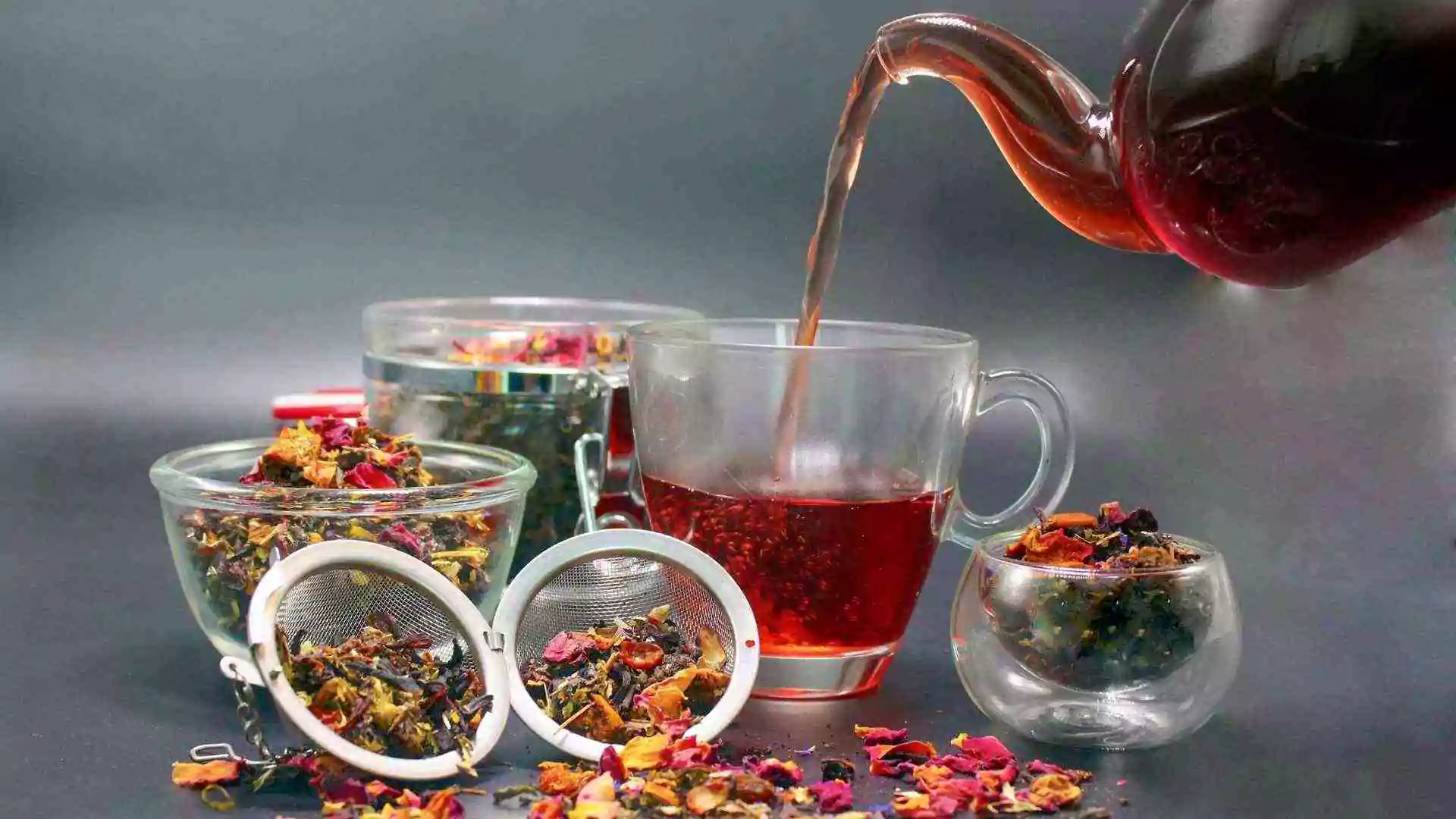
FAQs – Common Questions about Rosella (Hibiscus) Tea
What is roselle (rosella) tea?
Roselle tea is an herbal infusion made from the dried red calyces of the Hibiscus sabdariffa plant. It’s sometimes called rosella or Jamaican sorrel. The tea is tart and ruby-red, high in vitamin C and antioxidants. People have used it traditionally to quench thirst and for medicinal benefits like reducing fever or easing digestion.
What are the health benefits of rosella tea?
Rosella tea is loaded with antioxidants (especially anthocyanins) and vitamin C, which can boost immunity, fight inflammation, and protect the heart. It may help lower blood pressure and “bad” cholesterol, support healthy blood sugar, aid weight management, and promote liver health. Its free radical–scavenging compounds give it potential cancer-fighting and anti-inflammatory effects.
Does rosella tea lower blood pressure?
Many studies suggest rosella (hibiscus) tea can modestly lower blood pressure. For example, clinical trials have shown that people who drank hibiscus tea experienced greater reductions in both systolic and diastolic blood pressure than those on placebo. However, Cochrane reviews urge caution, noting that while anthocyanins in Rosella have blood-pressure-lowering effects in research, more high-quality trials are needed. If you’re on blood pressure meds, talk to your doctor before adding hibiscus tea, as it can amplify medication effects.
Can rosella tea help with weight loss?
Rosella tea has been linked to potential weight-loss benefits. Some studies (often using concentrated hibiscus extracts) found that hibiscus can reduce body fat and aid weight management. A 2023 meta-analysis suggested hibiscus tea, especially combined with other plant extracts, may induce weight loss and improve metabolic syndrome markers. That said, drinking rosella tea alone is not a magic bullet; the best approach is to replace sugary drinks with this low-calorie tea and maintain a healthy diet.
Is rosella tea caffeine-free?
Yes. Rosella (hibiscus) tea is 100% caffeine-free because it’s made from flowers, not from the tea plant (Camellia sinensis). This makes it safe to drink any time of day or evening. Its natural flavor comes from tart hibiscus compounds, not caffeine. As Cleveland Clinic notes, rosella is celebrated as a “thirst-quenching drink” without the stimulants of coffee or black tea.
How do I brew rosella tea?
To brew a cup, steep about 1–2 teaspoons of dried rosella petals in 8 ounces of boiling water for 5–10 minutes. Strain and enjoy it plain, or sweeten with a bit of honey or sugar. You can also add a slice of ginger or mint for extra flavor. For iced rosella tea, brew double strength, pour over ice, and garnish with lemon. (See STB Leaf’s blog for creative recipes like rosella lemonade.) Use high-quality dried hibiscus calyces for the best taste – STB Leaf’s online shop offers premium organic herbal teas.
Are there side effects of rosella tea?
Rosella tea is generally safe for most people when consumed in normal food amounts (1–3 cups daily). Rare side effects include mild stomach upset or allergic reactions in sensitive individuals. Because it can lower blood pressure, those with naturally low blood pressure or taking BP meds should use caution. Pregnant or breastfeeding women should consult a doctor before drinking large amounts. Overall, side effects are uncommon; long-term consumption appears safe for most.
Can pregnant women drink rosella tea?
There’s limited research on rosella tea in pregnancy. Because hibiscus contains phytoestrogens and can affect hormone levels, some sources advise pregnant or nursing mothers to avoid or limit it. Traditional uses include managing pregnancy symptoms, but without clinical studies, it’s best to err on the side of caution. Pregnant women should discuss herbal tea consumption with their healthcare provider.
How much rosella tea should I drink per day?
Moderate intake is recommended. Studies often use 1–3 cups of hibiscus tea daily to see health effects. Drinking 2 cups a day is common and generally safe. Because it’s caffeine-free, you can enjoy it any time. Just remember to brew it fresh and drink unsweetened (or lightly sweetened) to keep it a healthy, low-calorie choice.
Where can I buy quality rosella tea?
High-quality dried rosella (hibiscus) calyces are available from many tea shops and online retailers. Look for organic sources to avoid pesticides. In Bangladesh, local tea stores and specialty markets may carry dried hibiscus. For guaranteed purity, consider reputable brands. STB Leaf offers premium herbal teas from Bangladesh’s gardens – check their online store for organic rosella tea and other wellness blends. (Our blog’s 10 Creative Tea Recipes also highlights hibiscus lemonade, a fun way to enjoy rosella.)
Authoritative nutrition and medical reviews report on rosella (hibiscus) tea’s compounds and effects. Local context and tea culture are referenced from STB Leaf’s blog and Bangladeshi tea experts. All content is based on research-backed information.

